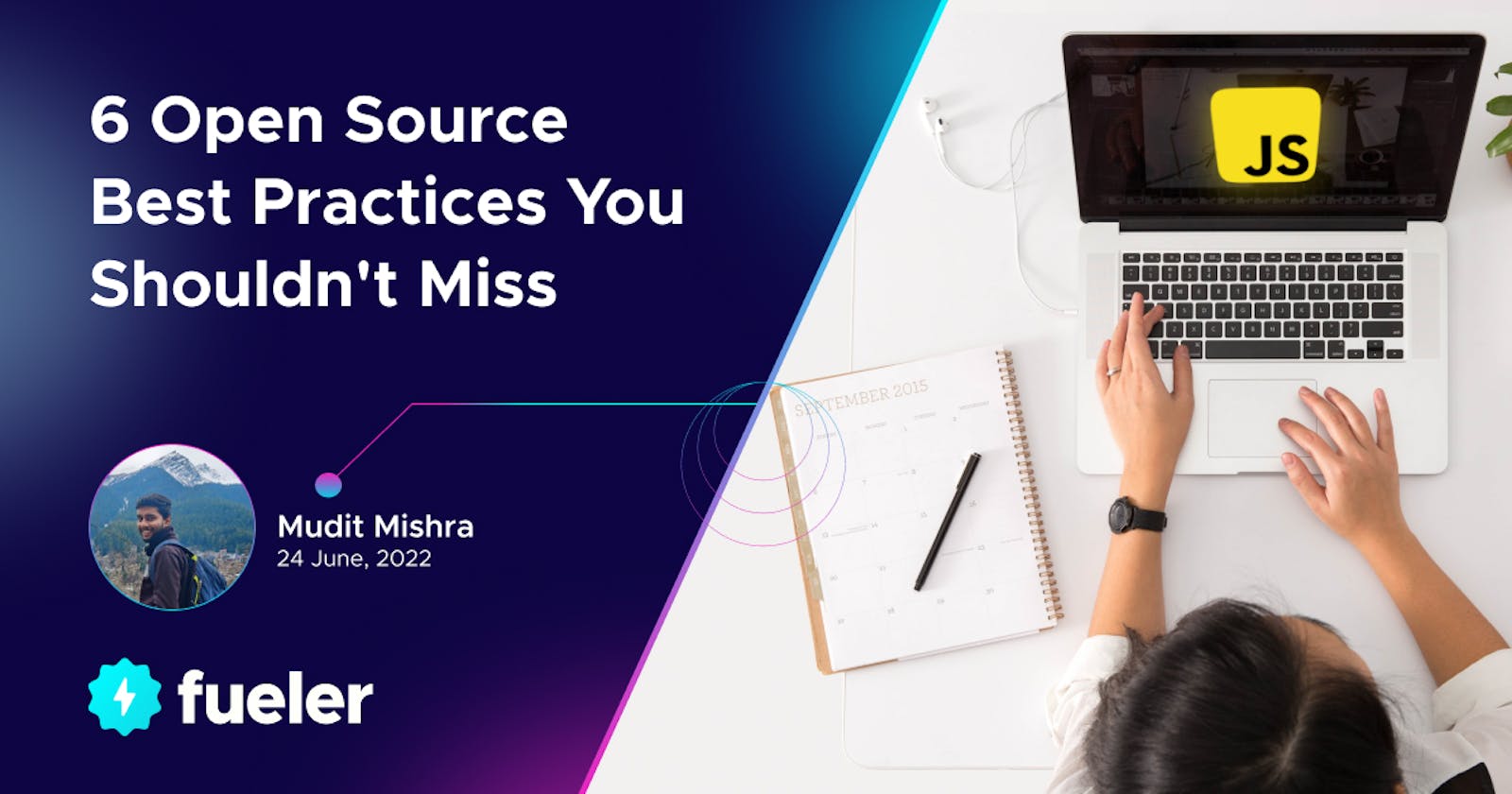6 Open Source Best Practices You Shouldn't Miss
Things you should keep in mind while contributing to an open source project.
Hey👋 folks,
Today we are going to learn about the things to keep in mind while contributing to an open source project.
Open source is awesome, contributing to an open source project can teach you a lot. However, it's very different from working alone.
When you contribute to an open source project, you are working in a team that might consist of hundreds or even thousands of folks from all corners of the world.
To work efficiently in a team, you have to keep certain things in your mind. It's good that you have learned how to use Git and GitHub, and you know how to create a PR.
However, it's equally important to know the guidelines you should follow while making that PR, you are working in a team you have to be a team player. So let's see how can we become better team players and contribute to open source.

1. Read the README
All the good open source projects have well-written documentation. This may include project README, contribution guidelines of the project, and other additional information for a new contributor.
It's very important for a new contributor to properly read all these documents. These documents include important information like how to use the project on your system locally, how to raise an issue, guidelines to follow while contributing, where a contributor can ask for help, etc.
So don't be lazy and always read these documents before you start contributing. The organization has created these documents for new contributors like you.

2. Know the project
It's important for you to understand what the project does before contributing to it. It's hard to understand the whole codebase, it might also look intimidating. But you don't have to know what each and everything of the project does, you just have to get an idea of the project.
You can start by using the project and setting it up on your system locally. Get an overall idea of it, and you are good to go.
3. Raise an issue
If you want to work on a new feature, or you have encountered a new bug in the project, don't just start working on it. First, raise an issue and define your feature/bug properly and when the maintainer of that project assigns you that issue or gives you a green signal, you are good to go.
For pre-existing issues: You should also keep in mind to check whether the same issue as the one you are going to create is not already present there. If it is, then don't create multiple issues of the same bug/feature. You can comment on the already existing issue and ask the maintainer if you can start working on it. If nobody else is working on it, the maintainer will assign you that issue.
4. Define your PR
Now that you have made the changes you wanted to, it's time to create the pull request. In your PR message define your PR, tell others what changes you have made, why you made those changes, and any other relevant information that'll help the maintainer to understand your PR better.
5. Keep it simple
There is one more thing that you should keep in mind before creating your PR.
You should try to keep your PR as simple as possible. Don't make multiple changes in a single PR.
I have maintained an open source project myself, I know how hard it is to review the PR when folks make tons of changes in one single PR. Don't do that, create separate PRs if you are changing/adding multiple things. Show that you care about your maintainer, and don't make his/her job more difficult.

6. Communicate and ask for help
The open source community is very welcoming for newbies. If you get stuck anywhere while contributing, you can always ask for help. You can ask for help by commenting on the issue you are working on or through the discussion tab.
However, there are just a few things that you should keep in mind while communicating with the community:
- Always be polite.
- Don't just say “Hi”, ask your question.
- Keep it short and to the point. Everyone's time is valuable.
- Be patient, you'll get the reply and your problem will be solved.
- Don't spam.
- Don't tag anyone.
- Adhere to the organization's community guidelines.
Keep in mind these points and keep contributing 🚀

Conclusion
Hope you all liked reading the article, and it added some value. I'm not an expert on open source, just sharing what I have learned and experienced. Open source can open a lot of opportunities for you. However, don't do it just for the rewards, open source is more about collaboration and helping others. Keep this open source spirit in you!
Thanks for reading, follow Fueler.io for more such content. Let me know your thoughts about the article in the comments down below, and share this article with your friends thinking to contribute to an open source project.


